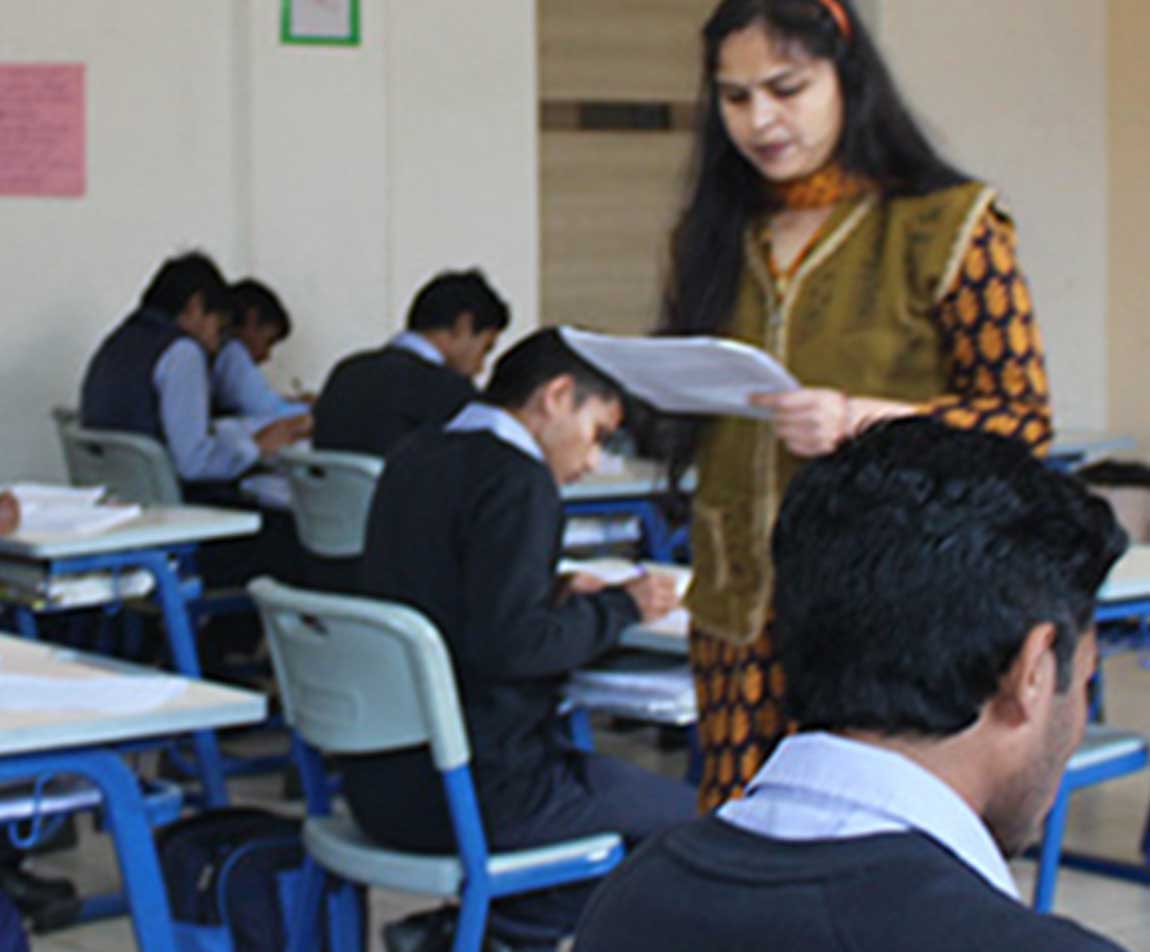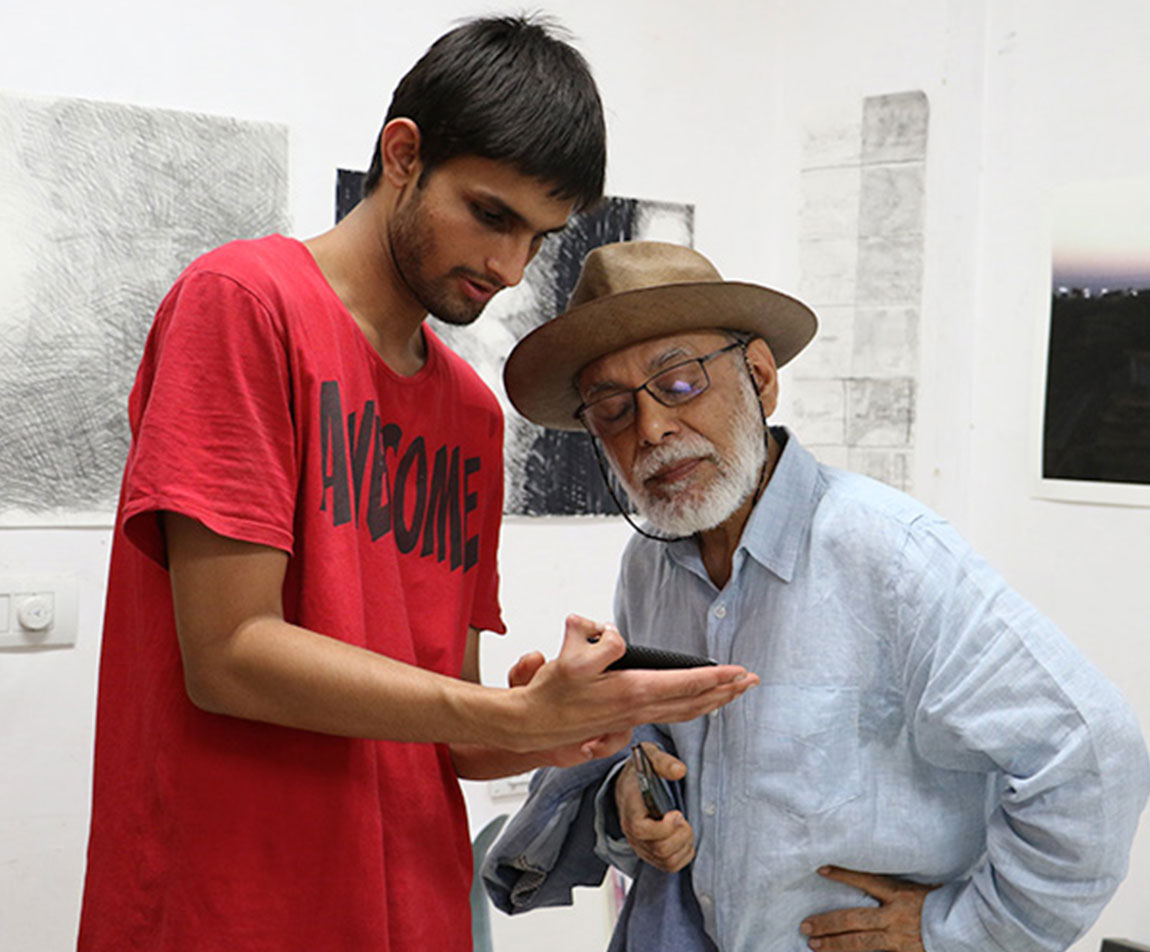
- Home
- What We Do
- Success Stories
- Sangeeta Rai

Sangeeta Rai
Stories from the Field is a series of interviews with people from the Shiv Nadar Foundation who work with children, youth, and other beneficiaries. It provides an uninhibited and unconventional view of the on-ground efforts they undertake and the impact of their work on the lives of the beneficiaries as well as on society.
"Sometimes the questions are complicated and the answers are simple." Dr. Seuss
Dr. Seuss’ poetry really opens our eyes to how the biggest life lessons can be taught in the simplest of ways. Teaching is a lot like that. You can keep trying to force learning on a child, but the child will only learn when she or he is truly stimulated and excited about learning. Sometimes, it’s as simple as that: creating an environment that is encouraging, interactive, free-thinking, and dynamic. The moment a child feels free to question, the learning begins.
Imagine children who come from places where they are never taught to question or be curious; in fact, such behavior is discouraged. This is where we begin at VidyaGyan. Every day, our task is not just to help children learn but also to help them unlearn behaviors that hinder their development and progress.
As an English teacher, one of the biggest challenges I have faced has been language. VidyaGyan admits the brightest and most high-potential students in 6th grade, albeit from extremely underprivileged backgrounds. While they have gone through some years of schooling, it is in a setting where English is rarely, if ever taught. How will a child learn to question and be curious if he cannot express himself? The language itself becomes the biggest barrier to their aspirations.
But the biggest of transformations always starts by taking the smallest of steps, each day, every day, without fail. And keeping at it vigorously. To make our students competent in English, we filled their lives with words.
Everywhere you go on the academy’s premises, the walls are filled with words for children to read, learn, and memorize, and use each day. All through the day, while walking the corridors, sitting in classes, or in-between, we encourage children to string along the words into sentences, and the sentences into stories.
In the classrooms, we use rhymes, audio-visuals, and all sorts of activities to make the learning more fun. For example, each class is divided up into editorial boards that come out with class magazines. The teaching is interactive and improvised at every step. Sticking to the syllabus, therefore, becomes secondary; the concepts take precedence.
And this learning extends outside the classroom as well. Children here come from very underprivileged communities and are often resistant to adopting new habits and lifestyles; even the food they eat is new and peculiar to them. Consequently, we need to be patient with them, building a comfortable and nurturing ecosystem. Each day begins with yoga, adding physical activity to inculcate a healthier way of living. This is followed by assembly, where active participation is encouraged to give the children more exposure and build their confidence.
The routine at VidyaGyan is rigorous. But one that effectively makes for an environment where learning, reflection and growth become the cornerstones of how the children spend each day and, hence live their lives.
Since the teachers live on the campus, there is a higher level of bonding. Students feel comfortable coming up to us for their personal problems, considering us more of a mentor than a teacher. But it wasn’t like this in the beginning. We had to build this support system with a lot of care, making sure we were approachable and understanding. It began with the tiny steps that always preceded the major leaps.
Today, the first batch that joined us in 2009, and those who followed them, have gone on to participate in international programs at prestigious places such as Duke University, Brown University, and Lehigh University. They have been selected for national-level exams such as the NTSE and NDA. My personal experience in training them for these programs and facilitating their participation has been very fulfilling. Seeing the exposure and learning they come back with is truly gratifying. Their stories of transformation are what make all this work and effort worthwhile.
VidyaGyan is a leadership academy, designed for the economically underprivileged, meritorious students of rural India by the Shiv Nadar Foundation. Established in 2009, VidyaGyan envisions bridging the urban-rural divide by creating leaders from India’s rural hinterland who can act as catalysts of change for their communities, villages, and the nation. VidyaGyan selects students from some of the most underprivileged rural areas of Uttar Pradesh and provides them with world-class education and exposure in a fully residential setting. It conducts one of the largest admission processes in the country for grade V students, with over 250,000 applicants. VidyaGyan has two campuses, in Bulandshahr (near Delhi NCR) and Sitapur (near Lucknow).


